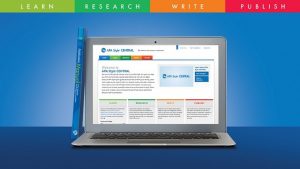The APA Handbooks in Psychology series was launched in 2011 to provide comprehensive overviews and in-depth study of specific subfields within psychology. All 28 of the Handbooks are included in the PsycBOOKS® database, and titles are also available individually.
 The most recent addition to this series is the APA Handbook of Dementia, edited by Glenn E. Smith and published in May 2018.
The most recent addition to this series is the APA Handbook of Dementia, edited by Glenn E. Smith and published in May 2018.
This handbook addresses assessment, comorbidity, evaluation, and treatment of various forms of dementia, and reviews common dementias including Alzheimer’s disease, Lewy body disease, vascular dementia, frontotemporal dementia, and other less common dementias. It is organized into sections discussing diagnosis, epidemiology, and neurobiology (including neuropathology and neuroimaging); assessment, including cultural issues, methodology, and neuropsychology; and primary, secondary, and tertiary intervention strategies.
The handbook is intended as a resource for all psychologists and other health professionals that serve persons and families impacted by neurodegenerative disease.



